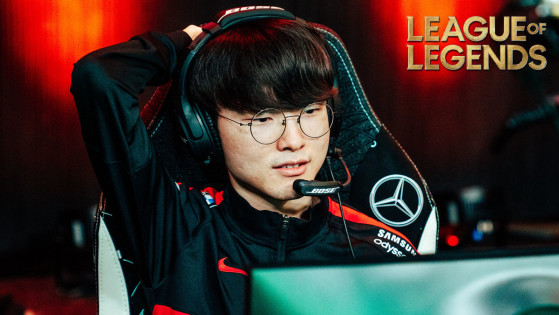When it comes to the best League of Legends regions in the world, the community always cites South Korea. Home country of teams such as T1, where three-time world champion Faker plays, Samsung White, considered by many to be the best team ever, the Samsung Galaxy and DAMWON, all world champions, the players of these teams and others first proved themselves in Korea’s SoloQ, considered one of the best in the world. What are the differences between the soloQ in the land of the Fresh Morning, and the soloQ we experience every day in EUW?
A difference from adolescence?
The person who performed these scans is “brinedevil” Lowell, who posted them on Reddit. This person introduced himself as having given League of Legends lessons for the Gen.G team. These courses were for potential future recruits and not the main teams. Even if there is no trace of the existence of brinedevil on most sites, his claims have still not been contradicted when the article is already 6 days old, while having had some success. Since Reddit is still monitored by teams, including Asian ones who have intervened on it in the past, it’s fair to assume that brinedevil’s statements about his esports past are correct.
The first difference, according to his observations, would come from the gaming culture of the country. The PC is a very popular game medium in South Korea, ahead of home consoles. Outside Europe, and the USA, children and teenagers generally have a game console while young adults prefer the PC (this is only a generality, with, of course, its thousands of exceptions) . There would therefore be a larger pool of players who could potentially go pro in South Korea than in the West, where a significant number of players already have a professional activity. Moreover, while Western audiences scatter over other titles like Fortnite, APEX or COD while in South Korea, League of Legends remains the undisputed flagship game.
A cultural difference
The major difference, however, is not in age, but in how you approach the game. Brinedevil compares soloQ NA players to Korean players: “Western players play for their ELO, calculating each move like chess players, while Korean players are more like Poker players, if their hand is bad (if the game is going badly) might as well give up and go to the draw next“. This is explained very simply according to him. Playing League of Legends while being dominated is a generally unpleasant experience, passing difficult minutes, for the potential fleeting satisfaction during a victory following a comeback. Except for young Koreans whose days are divided as follows: normal classes from 8 a.m. to 3 p.m., then “optional” evening classes (but which the vast majority of young people take) so that their days generally end around 8 p.m. / 9 p.m. Only then can they finally launch League of Legends, and they’re all about having fun. If the lane goes wrong, you might as well give up and move on to the next game.
The second effect occurs in the upper layers of the rankings, when a player’s individual performances may be enough to attract the attention of a professional team. The players then look for the clip that will highlight them the most, and do not hesitate to take risks to have an exceptional highlight. Nobody trusts others to carry, and doesn’t want to waste time letting another player potentially 1v5 the game. If this gives very fast games, this method above all allows future stars to acquire game mechanics far superior to those of other leagues (except perhaps the Chinese super server). While in the West players generally have good macro vision at the highest ELO, this is much less true in South Korea. The macro is learned after joining a team, the soloQ only serves to train its game mechanics. This reflection seems to be confirmed by the results of the various Western streamers, having tried to climb the South Korean ladder. Those with a playstyle heavily reliant on mechanics had results on par with how they performed in the West, while those with a more macro style had a much harder time ascending. It is indeed impossible for them to turn the tide thanks to a good vision of the game, when the other four players have already ff mentally.

